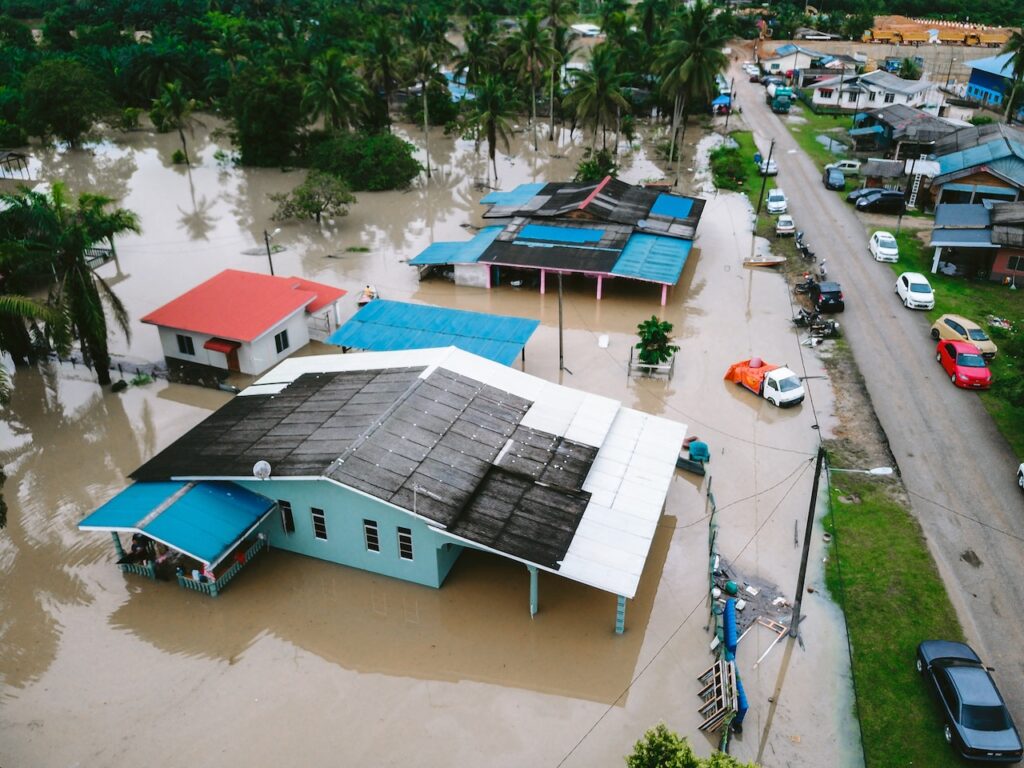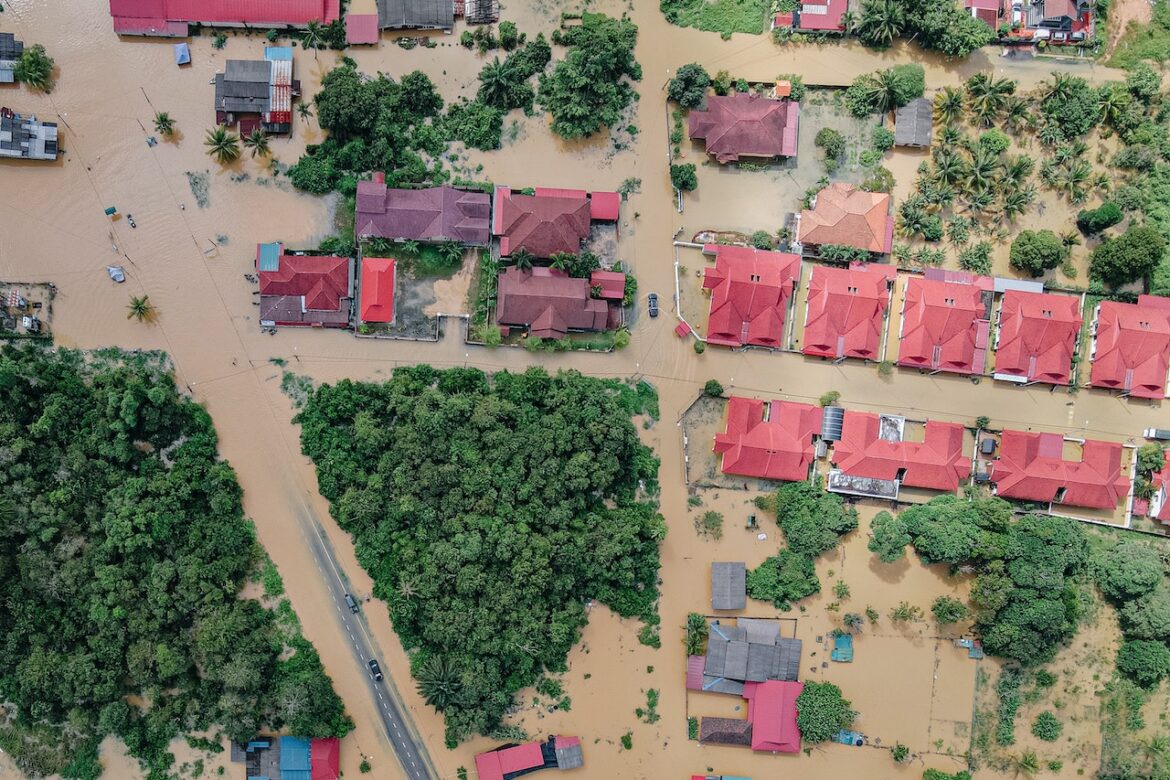Floods have a devastating impact on both human lives and livelihoods. Firstly, flood causes the loss of human lives. The force and speed of floodwaters can overwhelm individuals and sweep them away, leading to drowning or injury. Additionally, floods often damage infrastructure such as roads and bridges, making it difficult for emergency services to reach affected areas in a timely manner. This delay in response time can further contribute to the loss of lives during flooding events.
When floodwaters inundate agricultural lands, crops are destroyed, resulting in severe economic losses for farmers who depend on their yield for sustenance or income generation. Moreover, flooded homes and businesses may experience extensive damage or even complete destruction. This not only displaces families but also disrupts local economies as businesses struggle to recover or may be forced to close permanently.
Causes of Flooding
Flooding can have devastating consequences for both lives and livelihoods. One of the main flood causes is heavy rainfall, which exceeds the capacity of rivers, lakes, or drainage systems to handle it. When this happens, water overflows onto land areas that are not normally submerged, resulting in widespread flooding. Additionally, climate change has contributed to an increase in extreme weather events such as hurricanes and typhoons, which often bring heavy rainfall and subsequent flooding.
Another major flood causes are inadequate infrastructure and urban planning. In many developing countries or densely populated areas, poor drainage systems or improper land use can exacerbate the impact of heavy rainfall. Urbanization often leads to the rapid paving over of natural surfaces with concrete or asphalt, reducing the amount of permeable land available to absorb rainwater. As a result, water runoff accumulates quickly and overwhelms existing drainage systems.
Devastation of Lives and Homes
When a flood strikes, it not only leaves a trail of destruction but also claims lives and devastates homes. The sheer force of the rushing water can easily overpower buildings, uproot trees, and wash away entire neighborhoods. One of the main causes behind such catastrophic events is heavy rainfall. When an area experiences excessive precipitation over a short period, the ground becomes saturated and unable to absorb any more water. As a result, rivers swell beyond their capacity and burst their banks, unleashing torrents of water onto nearby communities.
Another significant of flood causes is poor infrastructure and urban planning. In many cities around the world, inadequate drainage systems fail to handle excess rainwater efficiently. Improperly designed or clogged drains are unable to channel the incoming water away from populated areas quickly enough. As a consequence, streets become flooded within minutes during intense downpours, leading to dangerous situations for both pedestrians and motorists.

Destruction of Livelihoods
Flood causes devastating effects on livelihoods, particularly in the agriculture sector. When floodwaters submerge farmlands, crops are destroyed, leading to substantial economic losses for farmers. This not only affects their income but also disrupts the food supply chain, resulting in increased food prices and potential shortages. Small businesses located in flood-prone areas often experience damage to their infrastructure and inventory. This disrupts their operations and may lead to closure if they lack the financial means to recover.
It not only results in immediate economic losses but also has long-term consequences for individuals and communities who rely on these sectors for their livelihoods. Therefore, effective disaster preparedness measures and support systems are crucial to mitigate such impacts and aid affected individuals in rebuilding their lives after a flood event occurs.
Health Risks and Psychological Impact
One of the most significant health risks associated with floods is drowning. As floodwaters rise, individuals may become trapped and unable to escape the water, leading to fatal consequences. Additionally, individuals who attempt to navigate through floodwaters are at risk of being swept away by fast-moving currents. These dangers can result in a significant loss of lives during flooding events.
The trauma experienced during and after a flood causes contribute to the development of mental health disorders such as post-traumatic stress disorder (PTSD), anxiety, and depression. The loss of homes, possessions, and livelihoods can lead to feelings of helplessness and hopelessness among those affected by flooding. Furthermore, survivors may experience survivor’s guilt if they have lost loved ones or witnessed tragic events during the flood. Understanding these consequences is crucial for effective emergency preparedness and response efforts in order to mitigate the devastating effects that floods can have on lives and livelihoods.

Rebuilding Lives and Communities after Floods
When a flood occurs, it poses significant risks to human life as well as infrastructure. The force of the water and its unpredictability can cause fatalities and injuries, leaving families torn apart and communities mourning the loss of loved ones. Additionally, flood causes lead to the destruction of homes, buildings, roads, and other essential community infrastructure, disrupting people’s daily lives and causing immense economic losses.
The flood causes on livelihoods is equally severe. Floodwaters can destroy crops, livestock, and agricultural lands, leaving farmers without a source of income or means to sustain themselves. For those who rely on fishing or other forms of water-dependent industries for their livelihoods, floods can wipe out entire populations of fish or damage equipment necessary for these activities. Small businesses that serve as the backbone of local economies may also suffer irreversible damage due to flooding, leading to job losses and economic instability within communities.
Rebuilding lives and communities after floods require comprehensive efforts that address both immediate needs and long-term resilience. Emergency response teams play a crucial role in saving lives during flooding events by providing rescue operations and medical assistance. Once the immediate danger has passed, initiatives such as temporary shelters are often established to provide affected individuals with basic necessities such as food, water, clothing, and healthcare services.
Oxygenating your Brain: Simple Habits for Mental Clarity and Focus







Comments are closed.